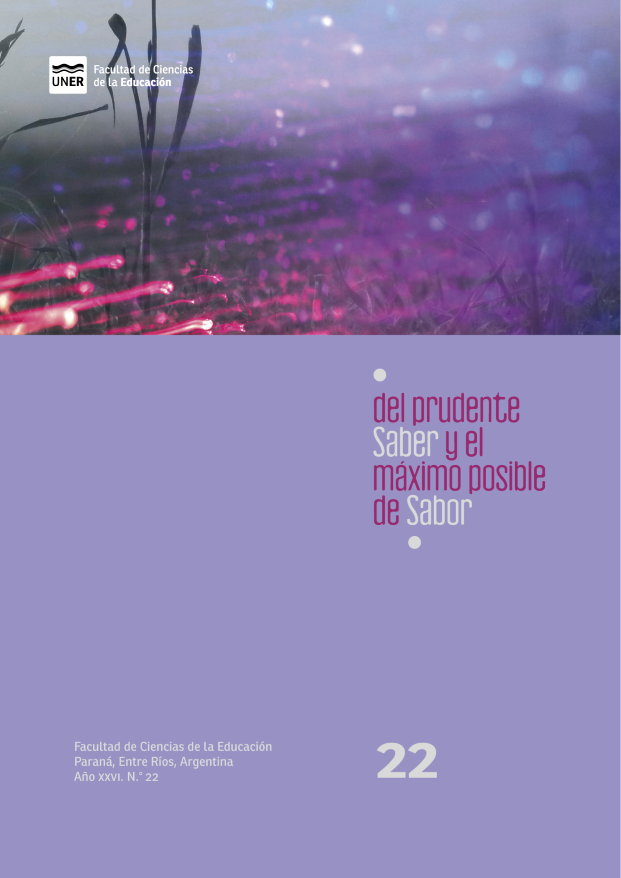Confronting Primitive Shame: From Narcissism to Mature Interdependence Insights from Martha Nussbaum
Main Article Content
Abstract
In this paper, we reflect on primitive shame, a widespread yet underdiagnosed emotion that carries perilous political consequences, such as dehumanization and physical violence. We approach the topic through the philosophical contributions of Martha Nussbaum, within the framework of the affective turn.
To achieve this aim, we analyze six of her major works on emotions and extract the most relevant insights for our inquiry. We begin with Nussbaum’s definition of the human condition as «a condition of shared incompleteness» and we adopt her understanding of emotions as intelligent responses intimately linked to a value-laden dimension. Our focus, then, turns to shame, a morally ambiguous emotion grounded in the recognition of our lack of omnipotence and control. While certain forms of shame may play a constructive role in social life, primitive shame entails a defensive nature and is associated with aggressive impulses and vengeful attitudes, arising from some individuals’ inability to tolerate dependency. Following Nussbaum, we observe that narcissistic attempts to restore an imaginary world of omnipotence are frequently connected to the stigmatization and segregation of others and also to the refusal to acknowledge their rights and needs. In the final two sections, we outline an alternative which is capable of interrupting the cycle of humiliation and revenge characteristics of narcissistic shame. Unlike Nussbaum, we argue that a particular form of forgiveness—provided it is clearly distinguished from forms associated with domination—can serve as a counterforce to shame.
In conclusion, we identify the paradoxically seductive core of identification with primitive shame, and we affirm that an education rooted in the humanities, the arts, and philosophy is the most promising strategy to counter the production of subjects affected by pathological narcissism —marked by profound difficulties in recognizing their own vulnerability and in forming meaningful connections—.
Downloads
Article Details

This work is licensed under a Creative Commons Attribution-NonCommercial-ShareAlike 4.0 International License.
Las ediciones no tienen cargos para las y los autores ni para las y los lectores, y se incita a las y los autores a depositar sus contribuciones en otros repositorios institucionales y temáticos, con la certeza de que la cultura y el conocimiento son un bien de todos y para todos. DPS permite la reutilización luego de su edición (Post print) citando la autoría y la fuente original de su publicación. Su uso no puede ser con fines comerciales.
References
Arendt, H. (1998). La condición humana. En R. Gil (Trad.). Paidós.
Cassin, B. (Dir.). (2018). Vocabulario de las filosofías occidentales: Diccionario de los intraducibles Vol. II. En J. Labastida (Coord. Gral) y M. N. Prunes (Coord. del equipo de traducción). Siglo XXI.
Darwin, C. (1998). La expresión de las emociones en los animales y en el hombre. En T. R. Fernández Rodríguez (Trad.). Alianza.
Freud, S. ([1910] 1999). Un recuerdo infantil de Leonardo da Vinci. En Obras completas Vol. XI, pp. 53-127; J. L. Etcheverry, Trad.). Amorrortu.
Freud, S. ([1917] 1999). Una dificultad del psicoanálisis. En Obras completas (Vol. XVII, pp. 125-136. En J. L. Etcheverry (Trad.). Amorrortu.
Freud, S., y Breuer, J. ([1895] 2006). Estudios sobre la histeria. En S. Freud, Obras completas Vol. II. En J. L. Etcheverry (Trad.). Amorrortu.
Hunt, L. (2006) «Martha Nussbaum on the Emotions». Ethics, 116(3), (April 2006), 552-577. The University of Chicago Press. http://www.jstor.org/stable/10.1086/498465
Kant, I. (1964). Respuesta a la pregunta ¿Qué es la Ilustración? En Filosofía de la historia, pp. 58-67, En M. Carlisky (Trad.). Nova.
Kindlon, D., & Thompson, M. (2000). Educando a Caín: cómo proteger la vida emocional del varón. Paidós.
Macón, C. (2022) «Filosofía feminista y giro afectivo: una respuesta ex ante». Revista Latinoamericana de Filosofía, 48(2), 283-303.
Nietzsche, F. ([1878] 2007). Humano, demasiado humano. Un libro para espíritus libres, Vol. I. En A. Brotons Muñoz (Trad.). Akal.
Nietzsche, F. ([1882] 2001). La ciencia jovial [La gaya scienza]. En G. Cano (Trad.). Biblioteca Nueva.
Nussbaum, M. C. (2003) La fragilidad del bien. Fortuna y ética en la tragedia y la filosofía griegas. En A. Ballesteros (Trad.). La Balsa de la Medusa.
Nussbaum, M. C. (2004). Hiding from humanity: Disgust, shame, and the law. Princeton University Press.
Nussbaum, M. (2005). El cultivo de la humanidad: Una defensa clásica de la reforma de la educación liberal. Paidós.
Nussbaum, M. (2008). Paisajes del pensamiento: La inteligencia de las emociones (A. Maira, Trad.). Paidós.
Nussbaum, M. (2010). Sin fines de lucro: Por qué la democracia necesita de las humanidades. En M. V. Rodil, (Trad.). Katz.
Nussbaum, M. (2012). El ocultamiento de lo humano: Repugnancia, vergüenza y ley. En G. Zadunaisky (Trad.). Katz.
Nussbaum, M. (2018). La ira y el perdón: Resentimiento, generosidad, justicia. En V. Altamirano (Trad.). Fondo de Cultura Económica.
Recalcati, M. (2024). La legge del desiderio. Frontiere Einaudi.
Robshaw, B. (2023). Martha Nussbaum and Politics. Edinburgh University Press.
Williams, B. (2011). Vergüenza y necesidad. Recuperación de algunos conceptos morales de la Grecia antigua. En A. Montes Sánchez (Trad.). Machado.

